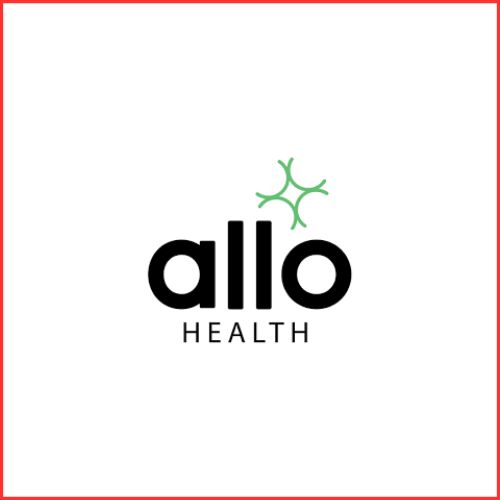
Health insurance is more than just a safety net for medical emergencies- it’s also a valuable tool for effective tax planning. The Indian Income Tax Act encourages individuals to invest in health coverage by offering tax benefits.
Among the various provisions, Section 80D stands out as a dedicated clause that rewards policyholders with deductions on the premiums they pay. Understanding how this section works can help you make smarter financial choices while securing your family’s well-being.
What is Section 80D of the Income Tax Act?
Section 80D of the Income Tax Act, 1961, allows individuals and HUFs to claim deductions on premiums paid towards medical insurance policies. This provision encourages people to secure medical coverage for themselves and their families.
The deduction is available over and above the exemptions provided under Section 80C, making it a separate and additional tax-saving avenue. The scope of Section 80D isn’t limited to just health insurance premiums.
It also includes deductions for payments made towards preventive health check-ups and contributions to government-approved health schemes. However, the deductions are subject to specific limits based on the insured individual’s age and relationship.
Health Insurance Tax Deductions Available Under Section 80D
Section 80D offers significant health insurance tax benefits on premiums paid for self, family, and parents. These deductions depend on the age of the insured members and the relationship with the taxpayer. Here’s how the benefits are structured:
- For Self, Spouse, and Dependent Children: You can claim up to ₹25,000 per financial year if the insured persons are below 60. This includes the premium paid for your health insurance and that of your spouse and dependent children.
- For Parents: An additional deduction of ₹25,000 is available if your parents are below 60. If one or both parents are senior citizens (aged 60 or above), the deduction limit increases to ₹50,000.
- For Senior Citizens (Self or Family): If the taxpayer or any covered family members is a senior citizen, the deduction limit increases to ₹50,000 in that category.
- Preventive Health Check-ups: Within the overall limit of ₹25,000 or ₹50,000, you can also claim up to ₹5,000 annually for expenses related to preventive health check-ups. This is applicable for all members included in the insurance coverage.
Eligibility for Claiming Deductions on Health Insurance on Section 80D
To claim deductions under Section 80D of the Income Tax Act, certain eligibility criteria must be met regarding who is covered and how the payment is made. Here’s a breakdown of who qualifies and under what conditions:
- Eligible Individuals: The benefit under Section 80D is available only to individuals and Hindu Undivided Families (HUFs). Companies or firms cannot claim deductions under this section.
- Who You Can Claim For: Deductions are allowed for premiums paid towards the health insurance of yourself, your spouse, dependent children, and parents (whether dependent or not).
- Dependents Only: The benefit is allowed only for children who are financially dependent on the taxpayer. Premiums paid for independent children or siblings are not eligible.
- Mode of Payment: To claim the deduction, the health insurance premium must be paid through non-cash modes like a cheque, credit/debit card, net banking, or UPI. However, expenses for preventive health check-ups can be paid in cash and are still eligible.
- Residential Status: The deduction can be claimed by resident and non-resident Indians (NRIs), as long as they meet the payment and relationship conditions.
Key Tips to Maximise Your Tax Savings
To make the most of tax benefits under Section 80D, it’s important to plan wisely and understand the fine print. Here are some tips to help you optimise your savings:
- Split Premiums for Additional Benefits: If you’re paying premiums for both your family and your parents, you can claim deductions under separate limits- up to ₹25,000 for your family (₹50,000 if you’re a senior citizen) and an additional ₹25,000 or ₹50,000 for your parents, depending on their age.
- Include Preventive Health Check-Up Expenses: Within the overall limit, a maximum of ₹5,000 can be claimed for preventive health check-ups. These expenses can be paid in cash, making it easier to use even small payments for tax benefits.
- Check Age Criteria Carefully: The higher deduction of ₹50,000 is applicable only if the insured individual is 60 years or older. Accurately determining the age can help maximise deductions, especially if your parents are senior citizens.
- Pay Premium in the Correct Mode: Ensure the premium is paid through net banking, debit/credit card, or UPI. Cash payments (except for health check-ups) are not eligible for deductions.
- Opt for a Multi-Year Policy (If Suitable): If you choose a policy for multiple years and pay the premium upfront, you can claim the deduction proportionately over the policy period. For instance, a two-year premium of ₹40,000 can be claimed as ₹20,000 yearly.
- Don’t Forget About Top-Up Plans: Premiums paid for top-up or super top-up health insurance plans also qualify for Section 80D benefits, provided they meet all other eligibility norms.
Health insurance offers financial protection during medical emergencies and is an effective instrument for tax savings under Section 80D of the Income Tax Act. By understanding the various limits, eligibility conditions, and smart strategies to maximise your deductions, you can reduce your taxable income significantly while ensuring comprehensive coverage for your family.















